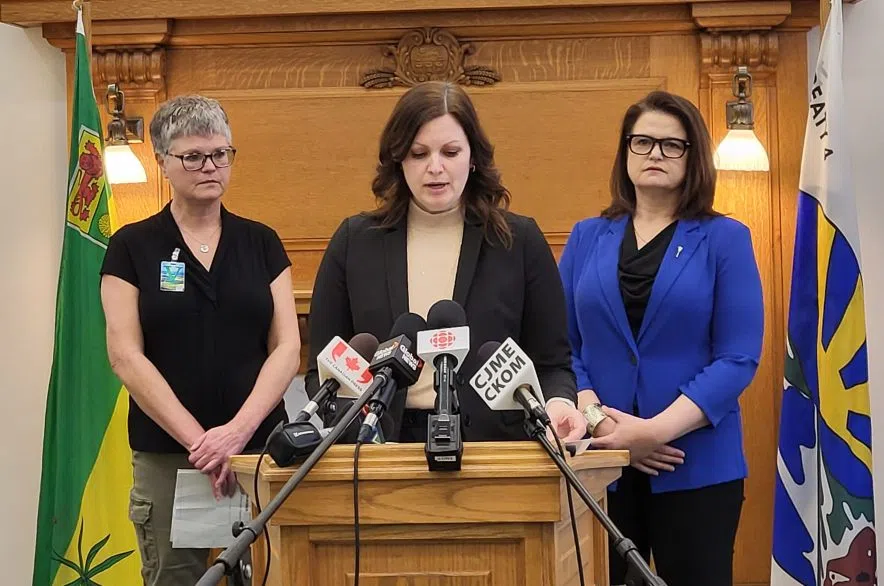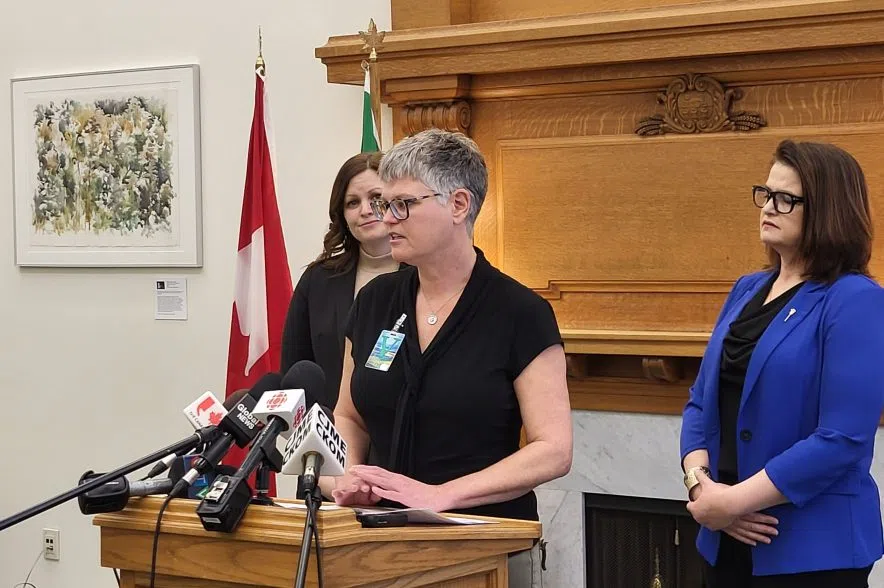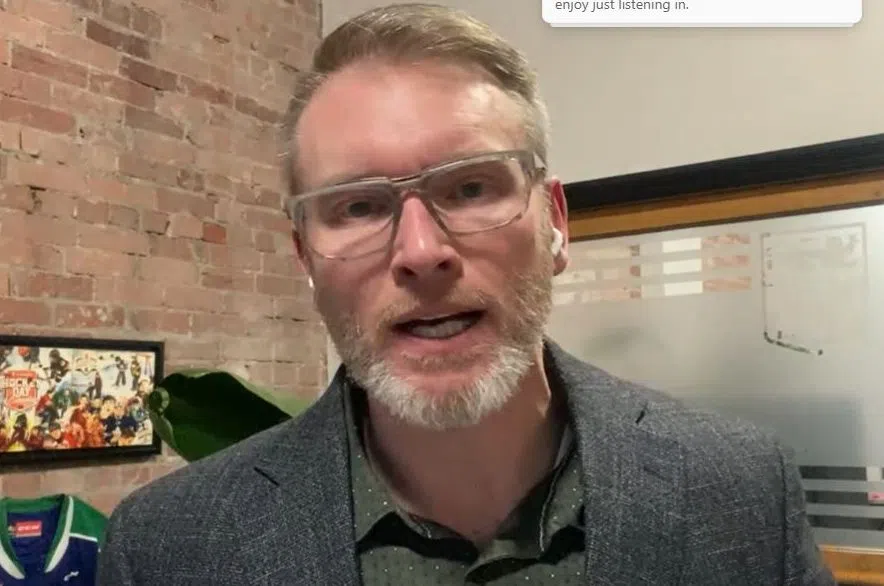A Saskatchewan woman is calling the province’s health-care system broken after waiting 10 months for a diagnostic mammogram.
Nadine Baker, 61, said she first began to show signs of breast cancer in the fall of 2022.
Baker’s mother is a breast cancer survivor who was advised to tell all of her daughters and potential granddaughters to get regular, early screenings which Baker says she’s been doing every two years.
After noticing changes in her body, Baker said the breast cancer screening program told her to seek a diagnostic mammogram. Her doctor referred her for one in March of 2023, but Baker said the radiology office in Regina didn’t contact her until Jan. 5 of this year.
She said they apologized but didn’t book any future appointment. She said the situation has been a constant worry.
“It’s a long time,” she said Monday about having to wait almost a year. “What I’m hoping for is a quick resolution, a quick mammogram and to see, ‘Do I have breast cancer? Please let me know.’ ”
Baker said it’s especially concerning since she witnessed her mother struggle with breast cancer.
“I know what the picture looks like,” she said. “The sooner you get diagnosed, we know the better your outcomes, so this is what I’m hoping for.”
The radiology office asked Baker if she’d be willing to travel for an appointment. Baker agreed to do so, but no progress has been made.

NDP Health Critic Vicki Mowat (centre) with Nadine Baker (left) and NDP Leader Carla Beck (right). (Daniel Reech/980 CJME)
NDP Health Critic Vicki Mowat said the government’s solution of sending people outside the province is a band-aid solution.
“Stories like Nadine’s highlight the fact that it’s not working. (Government officials) need to work to come up with a local solution in the province that can fix this so that women in our province can know whether or not they have breast cancer,” Mowat said Monday.
“It’s completely unacceptable that they have been waiting this long to receive basic health care.”
NDP Leader Carla Beck said this wasn’t a pandemic issue but a long-standing issue in Saskatchewan.
“We have four fewer surgeons in Regina giving breast cancer care than we did when (Premier) Scott Moe took office and it’s hard to imagine with the second-leading cause of death being breast cancer that the government has let the system deteriorate to this point,” Beck said.
On a virtual conference call, Health Minister Everett Hindley said the province was trying to reduce wait times, which he admitted were at an “unacceptable” level.
Since the government made the announcement in November, Hindley said roughly 148 women have been contacted about the option to travel to Calgary and 45 have had their diagnostic procedures done in Calgary so far.
“We are seeing some significant turnaround when it comes to people being able to be in contact but also being able to make arrangements for what they need to have done,” Hindley said.
Mowat mentioned issues that some women have had with the process – often stemming from a lack of clarity or communication. Hindley acknowledged that the process could be improved.
“If there are some questions around how this exactly is working and if there is perhaps some lack of clarity between the provider and patients and our teams here in Saskatchewan, we’ll endeavour to look into that and fix anything we can when it comes to making sure that this is a smooth process for people to be able to get that information,” he said.












